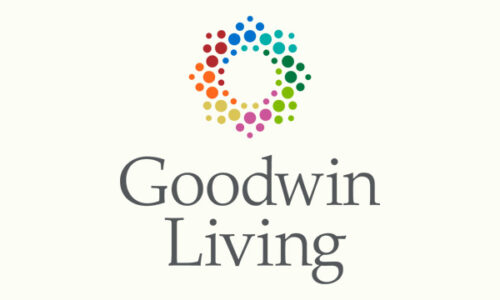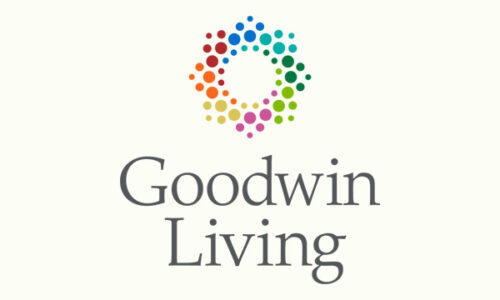January 25, 2024
Take Control of Your Data
By Amanda Ranowsky
How much of yourself are you sharing online? It’s a question that we all should ask ourselves as more and more aspects of everyday life can be facilitated through websites, smart phones, tablets, apps, and more.
Need to visit a doctor? No need to go into an office – you can take your appointment via video call in the comfort of your living room. Need to deposit a check? No more standing in line at the bank – you can take a picture with your phone and submit it on your bank’s mobile app. You can buy your groceries online, rent eBooks from your local library online and watch the latest movie blockbusters online.
Easy access to knowledge, information and entertainment is at our fingertips, but what do we give up in exchange for that access? And how many of us are even fully aware of the personal information that we are making available?
I’ve always thought of myself as being cautious with my data. I practice the steps I thought were needed to protect my identity online. As I researched for this article in honor of Data Privacy Week, I realized that I have much further to go.
What is Data Privacy Week?
Since 2008, the National Cybersecurity Alliance—a nonprofit organization that advocates for the safe use of all technology and educates people and organizations on how to protect themselves from cybercrime—has sponsored the recognition of Data Privacy Day (January 28). In 2021, they expanded the recognition to cover a full week.
This year, the theme of Data Privacy week is “Take Control of Your Data,” a call to be mindful of and take steps to manage how every piece of data about you and your family is collected. Let’s explore some simple steps you can take to manage your data online.
Privacy vs. Convenience: Are You Trading One for the Other?
This question really hit home for me: How much of your data are you sharing in exchange for the convenience of using a particular online service or app? And the important follow-up question: Is it worth it?
Let’s take an offline example to start; one that helps us illustrate the importance of how you can be tricked into sharing more data than is necessary.
Let’s say a child from your local Girl Scout troop came to your door to see if you wanted to buy some Girl Scout cookies. You might expect the order form she hands you to ask for your name, address and contact phone number (in addition to your cookie order, of course!). But what if that form also asked questions such as “What is the make and model of your car?” or “What is your birthday?” or “Where were you born?” If the form included these questions, you’d probably notice that you’re being asked for information that is in no way relevant to ordering Girl Scout cookies.
“Protecting your data is the same whether you’re browsing the internet or doing something in person,” said Goodwin Living Senior Resident Technology Specialist Victor Otusanya. It’s his job to help Goodwin Living residents troubleshoot problems with their devices and learn how to safely navigate the digital world.
“I’ve found that a common misconception among older adults is the idea that everything that appears on the screen is law,” Victor shared. “They trust that if the website or app is asking for the information, they must have a legitimate need for it. The mantra we promote is ‘think before you click’. I’d also say, ‘think before you give’.”
Discussing this mantra with Victor got me thinking about my own practices. I know there are times when I’ve traded the convenience of using my Google account login information to log in to other apps and websites. When I do this, I receive notice that information such as my name, birthday and perhaps other pieces of personal information stored in my Google account will be shared with this new app or website. Yet I agree to it because of the convenience I enjoy from having to remember only one password (my Google password) to access any number of other sites and apps.
If instead I’d opted to create a new username and password for that app or website, I might not have needed to share all that information to access the service. Maybe next time, I’ll think before I give away that information with one easy click.
Protect Your Data
Most of us have heard the recommendation to create longer, unique passwords for each of our accounts, but how many of us follow this advice?
This is another tradeoff between privacy and convenience. I certainly spent years using the same three passwords for all the accounts I created. I did this because it made it so easy for me—it also made it easy for a hacker to get into many of my accounts if they got their hands on one of those passwords. I’ve been slowly working my way out of that habit, changing the passwords for the accounts that used those passwords the next time I access the account.
If you’re concerned about remembering all those new passwords, there are safe password management tools that you can use. The National Cybersecurity Alliance shares more information about this type of tool and recommended options here.
Utilizing multi-factor authentication (MFA) when it is available to you is another great way to add security to your accounts. MFA works by prompting you to provide a second factor that verifies your identity—a code texted to your mobile phone, a memorized PIN, or opening a notification in different application to verify that you are the one trying to log in. You might have heard MFA referred to as “Two-Factor Verification” for this very reason.
It can be slightly inconvenient to have MFA set up on all your accounts—if you’re trying to log in to something on your laptop, for example, you’ll need to have easy access to your mobile phone (and sometimes vice versa)—but the added layer of security helps ensure your data is protected even if someone gets hold of your password.
Educate Yourself!
Another strong recommendation that Victor shared for anyone seeking to take control of their data privacy is simple—“Educate yourself!”
“I see so many older adults underestimating the scope of their reach when it comes to browsing the web,” he shared. “They often do not realize that they have access to the entire world from their fingertips, and that there are some malicious actors mixed in with the bunch. The more you know about what you can do to protect yourself and about the tactics that scammers use to try and deceive people, the better off you will be.”
If you’re reading this article, congratulations! You’re already following Victor’s parting advice. Now you have some additional steps you can take to take control of your data privacy!
Ready to learn even more? Check out this video with Victor and IT Support Coordinator Barbara Chapins.
__________
As Marketing & Communications Specialist, Amanda Ranowsky partners with colleagues throughout Goodwin Living to tell our stories and raise brand awareness. From printed collateral to digital marketing, Amanda covers many bases. Before joining Goodwin Living, Amanda worked for a small, family-owned business where she gained experience in content marketing. Amanda’s creative expression extends beyond the office. She is an active member of community theater and chorus groups.





